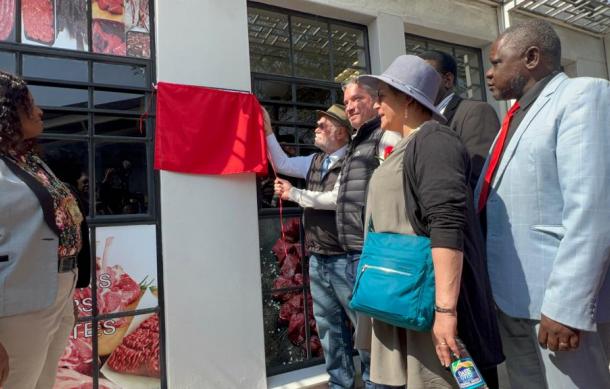
The Minister of Agriculture, Water, and Land Reform, Carl Schlettwein, inaugurated the Amarika Farmers' Cooperative Butchery in Outapi.
Amarika Farmers' Cooperative Butchery was set up with financial assistance from the government, the European Union, and Germany.
Schlettwein believes this initiative will significantly motivate and inspire local farmers to increase livestock production and deliver their products to the butchery, ultimately benefiting the residents of Omusati and enabling farmers to generate income.
He also urges cooperative members to focus on producing high-quality meat products and to optimize their capacity, enabling them to expand their product supply to other regions and consider entering the international market.
"With getting involved in the value chain, there is a very good change for cooperatives to create a financial buffer for farmers, they now have a better financial chance to bridge droughts, and with getting involved in the value chain, they will have the financial means to restock much faster."
In 2020, the first Amarika Cooperative Butchery opened its doors in Okahao.
It was equipped by GIZ, which provided meat cutters, cold rooms, display fridges, sausage fillers, tables, and a vehicle at a cost of N$480,000.
The Outapi butchery was funded by NAMSIP, a project within the Ministry of Agriculture, at a cost of N$197,000. NAMSIP supplied them with a biltong cabinet, deep and chiller fridges, and a vacuum sealer.
Both butcheries' food outlets are committed to providing the nation with hygienic meat products in accordance with Namibia's food safety policy for meat and meat products.
As a result of the drought's impact, only 60% of the cattle processed at the Outapi butchery originate from cooperative members, while the remaining 40% come from non-member livestock farmers in the Omusati Region.





